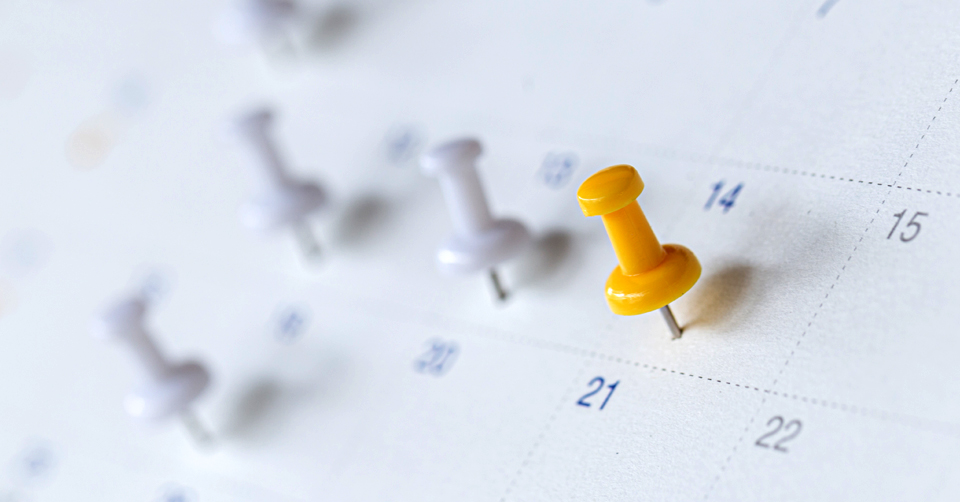Medenta Business Development Manager, Shelley Clegg, explains why it’s important to zone your practice diary and offers some tips on how to go about this.
Making the best use of your practice diary is crucial to the smooth running of your practice. A way to ensure things run as efficiently as possible is through ‘diary zoning’. This involves organising the appointment book into specific time blocks or ‘zones’ dedicated to different types of appointments. Not only will this improve the workflow, but it will also reduce stress for the dental team and enhance your patients’ experience.
Enhancing Efficiency and Productivity
Diary zoning helps streamline the daily operations of a dental practice. By allocating specific times for different types of appointments, such as routine check-ups, emergencies, and high-value treatments, you can ensure that each type of appointment is given the appropriate amount of time and attention. This approach means you’re less likely to overbook certain appointment types and helps the practice run smoothly throughout the day.
By setting aside dedicated time slots for high-value treatments, such as root canals or cosmetic procedures, this allows the dentists to focus on these complex tasks without the pressure of back-to-back routine check-ups. This not only improves the quality of care for the patient but also helps dentists meet their daily targets more efficiently, whether that’s financial or UDAs.
Reducing Stress for the Dental Team
A well-organised diary makes life much less stressful for the team as a whole. When appointments are scheduled haphazardly, it can make things chaotic, leaving staff constantly juggling different types of appointments and dealing with unexpected emergencies. Diary zoning provides a clear structure, making it easier for the front desk team to manage the schedule and for the clinical members of the practice to prepare for their appointments.
For example, by having a specific block of time for emergencies, urgent cases can be handled without having to ‘fit them in’ and disrupting the rest of the schedule. This allows emergencies to be dealt with promptly while still maintaining the flow of regular appointments. Another benefit of having a predictable schedule is that it allows the dental team to plan their day better, which should reduce the likelihood of them running late and keeping patients waiting.
Improving Patient Experience
With fewer appointments running over, patients can be seen promptly and on time. As well as shorter waiting times, a well-structured appointment book gives the impression of the practice being well organised too. This can help to build a patient’s trust and confidence in the practice as a whole and the quality of care they receive.
In addition, diary zoning can help ensure that new patients are seen promptly. By setting aside specific time slots dedicated to new patient consultations, practices can offer new patients an initial appointment within a reasonable timeframe, which will help to leave them with a great first impression of the practice.
Implementing Diary Zoning
Before you introduce diary zoning, you will need to consider the practice’s specific needs carefully. Here are some suggestions to get you started:
Assess the Practice’s Needs: Identify the different types of appointments and their frequency. Take into account the practice’s patient demographics, the types of treatments offered, and the availability of your dentists and hygienists.
Set Clear Zones: Allocate specific time blocks for different types of appointments. For example, you might want to reserve mornings for high-value treatments, afternoons for routine check-ups, and set aside specific slots for emergencies.
Train the Team: Make sure that everyone understands the importance of diary zoning and how to use the system effectively. Train reception and front-of-house staff on how to schedule appointments within the designated zones and how to handle exceptions.
Monitor and Adjust: Carry out regular reviews of your appointment book to ensure that the zoning system is working effectively. If not, make adjustments based on the feedback you receive from the dental team and your patients.
Diary zoning can be a powerful tool for improving the efficiency and effectiveness of a practice. By organising the appointment book into specific zones, you can improve productivity, reduce stress for the dental team, and provide a better experience for patients.
About Shelley
Shelley Clegg is a Business Development Manager at Medenta and has 41 years’ experience in the dental industry, including 23 in practice. As well as providing comprehensive advice on increasing uptake on patient finance, her experience enables her to give support to dental teams in all aspects of the business of running a practice.


